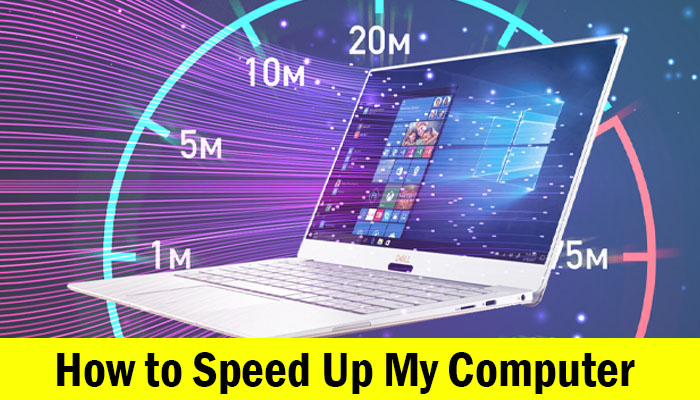How to Speed Up My Computer – How to Make Your Computer Run Faster
One of the most common questions about how to speed up my computer is “what do I do?” If your computer seems to be running slowly or sluggish, there are several steps you can take to make it faster. Using the task manager, you can see what processes are running in the background and end them by right-clicking them. Delete any process that consumes more than 1,000 MB of memory, or two to five MB/s of disk activity. If these techniques don’t work, try reinstalling your operating system.
Another way to speed up your computer is to remove unnecessary programs. To do this, press the keys Ctrl and Alt and then select Task Manager. You can find the processes running on your computer by clicking on the Processes tab. Some of these processes are taking up too much memory and making your computer run slower. Closing these programs will also make your computer run faster. In some cases, uninstalling software may be necessary to free up disk space.
Freeing up space on your computer is another key to speed up your machine. To do this, go through your local hard drive and delete any programs you don’t use. Similarly, you can also use an external hard drive for bigger files and upload them to cloud storage. As you can see, there are a number of ways to speed up your computer and get it working like new again. If you have a slow PC, follow these simple tips to make it run faster.
To increase your system’s RAM, use the system info tool to check what type of RAM your computer has. It will also show you the amount of RAM your computer uses. If you have more RAM than this, remove unnecessary programs and perform a clean Windows install. This will make your computer much faster. You’ll be surprised at how much faster it will be after these steps! There are several ways to speed up your computer and keep it running smoothly.
Close unwanted programs. By pressing Ctrl+Shift+Option+Desktop, you can see which programs are using the most CPU. You can also see which ones are taking up too much memory by looking at the Processes tab. Once you know which applications are running, close them and you’ll notice that your computer will be much faster. This is a great way to speed up your computer.
Close unnecessary programs. Keeping your computer free of unnecessary programs will speed it up. By enabling the Task Manager, you can close any program that uses the CPU. You can do this by selecting the Start Menu and then choosing Task Manager. The Task Manager will show you which processes are using the CPU. You can delete these applications and close the others that are not required. If a program is taking up too much space, try uninstalling it.
Check the CPU. Sometimes, your computer is using too much CPU. You should check the CPU usage by opening the Activity Monitor. This will give you a quick overview of the programs using too much CPU. If you see that some of the programs are using up more than 50% of your CPU, delete them or close them. It will help to minimize the number of programs you open. You should also check the amount of space used by specific applications.
Identify the programs using too much CPU. By running the Activity Monitor, you can see which programs are using too much CPU. If the program is using more than 50% of your CPU, it will slow all of the other applications. To speed up your computer, delete the slow application or shut down the other programs. Additionally, you can remove unnecessary files from your computer. If you have too many programs, delete them. When you do not need them, then disable them.
Clean up unnecessary files. If you’ve downloaded and installed programs that you don’t need or use, remove those files. These are the most common ways to speed up your computer. Delete all of these items. You can use a free system cleaner to clean your computer’s registry and delete unnecessary files. Then, uninstall the programs that are not used and those that you no longer need. In addition to deleting those, you can also disable certain programs that are not essential.

